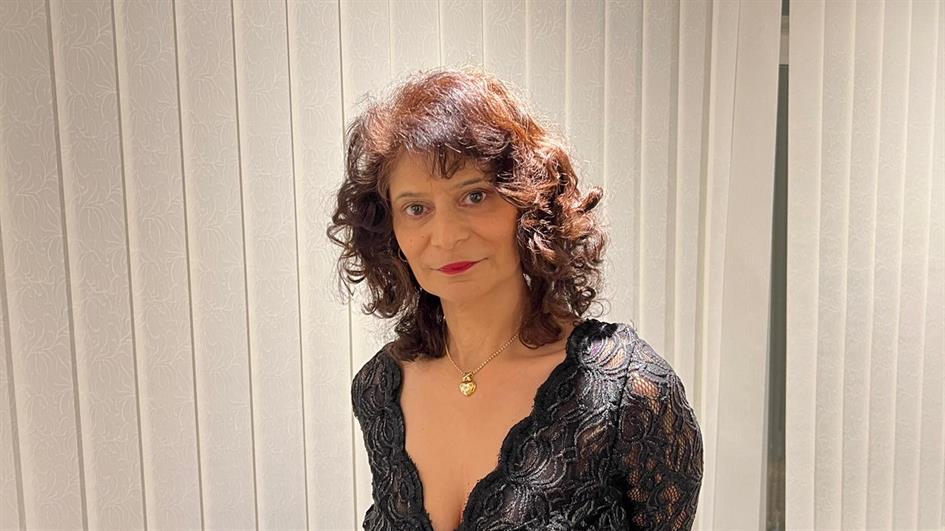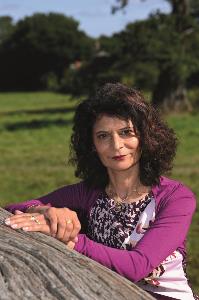
Image: Surinder Chand. Credit: Surinder Chand
When I first told my colleagues I’d been diagnosed with cancer, they were shocked. Cancer doesn’t happen to health professionals – we’re here to help the people it does happen to.
In January 2019, I was diagnosed with nodular lymphocyte-predominant Hodgkin lymphoma (NLPHL), which is a rare type of blood cancer.
I’d noticed raised lumps on my neck and had asked some of my colleagues to take a look. Everyone seemed to think there was nothing to worry about. We all thought it was just my lymph nodes, and that my lymphatic system was fighting off some sort of infection.
But I knew something was wrong, and when the lumps didn’t go away, I saw an ENT (ear, nose and throat) consultant. They did a biopsy, and the results suggested I had a type of Hodgkin’s lymphoma.
Then I had a scan, which found tiny clusters around my collar bone and my diaphragm, and I was diagnosed with NLPHL.
It was my birthday that day. We always go out for a family meal on my birthday, and this year was no different.
Except this year my husband and I had to tell our two children I had cancer. All I saw was tears and tears and tears.
‘It would be okay’
My mum had died from pancreatic cancer a few years before, and I knew they’d be scared.
I’m a very positive person though, and I knew I had to get on with it, so I told my family that that’s what we would do. It would be okay, and I would get through it.
I started a cancer drug combination, called R-CHOP, straight away. After three cycles, I had a complete response, which means there was no longer any sign of cancer, but I underwent the remaining three cycles, just to be on the safe side.
I lost my hair during chemotherapy, which was really hard. Like so many people, my hair is a major part of my identity. It’s started to grow back now, but it’s not quite the same.
I know some people can just get on with chemotherapy, and I did to some extent – I still cooked and did housework – but it was tough, and I went back to work as soon as I could afterwards, as I was desperate for normality.
You can’t know what someone’s going through
At work, when I used to treat cancer patients, I could only really hold their hands – you can’t know what someone’s really going through. But that’s changed after my own experience.
Now, I look out for everything. I’m more vigilant, I explore a bit more, I encourage patients to get further tests if it’s possible, and I advise other routes for them to go down.
I know that even if a person’s bloods are fine, something else can be wrong. I look for signs: what’s changed, their age, demographic background, symptoms.
If someone says they don’t feel right, I really check why.
One thing I noticed during my own treatment was that, as I was a healthcare professional, many people assumed I knew what was going on. But I didn’t.
I wasn’t told why I was put on my specific chemotherapy programme, and I wasn’t forewarned about the side effects. I was given a lot of literature, but all the information I wanted came from the doctors and nurses themselves.
Cancer patients deserve to have all the information they want and need, and I’d urge anyone going through something similar to just ask questions. Getting diagnosed and going through treatment is scary, and it can really help to know exactly what is happening and why.

With routine appointments, and routine check-ups, and routine scans, I think it’s easy for people to become just part of that routine.
But these are real individuals, with real individual concerns and real individual worries, so it’s important they’re kept updated and informed about their treatment.
I had a scan after my chemotherapy finished, but no follow up ones. They say that, after two years, there’s only a very small chance my type of cancer would come back.
But I’m worried. Strangely, I’m more worried now than I was when I was going through treatment.
Living with anxiety is a big part of a cancer diagnosis, and I hope that research continues to move forward so that the future is less uncertain.
I’m lucky that my cancer was slow-growing and was caught early so it was treatable. All I can do now is to keep speaking out to make sure other people know what signs to look out for – and to tell anyone to get help if something doesn’t feel right.
Image: Surinder Chand. Credit: Photo taken for Lymphoma Action by Sam Bagnall
Rare cancers are cancers of unmet need. Patients urgently require new treatment options to help them survive their disease. Improving the outlook for these patients is one of our key fundraising priorities.